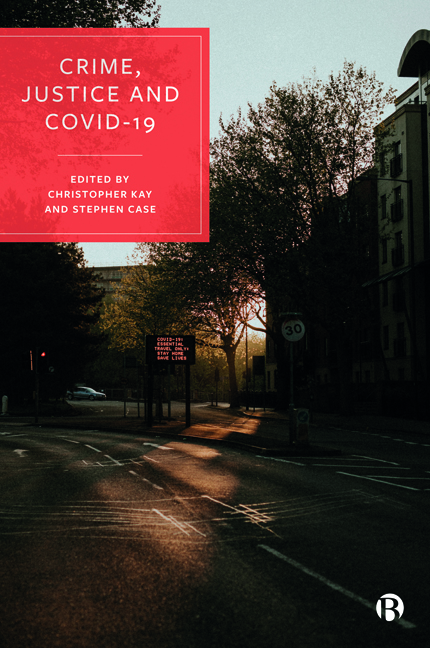7 - Racism, Policing and the Pandemic
Published online by Cambridge University Press: 20 January 2024
Summary
Introduction
While in the United Kingdom, the government was initially slow to recognize the profound dangers of the COVID-19 pandemic, soon after Prime Minister Boris Johnson's initial plea to the public to ‘stay at home’, in March 2021, emergency legislation was rushed through parliament. On 25 March, the 350-page Coronavirus Act 2020 received royal assent, bringing the biggest restrictions on civil liberties in a generation into law the following day. Overnight, the Coronavirus Act, along with the broader raft of legal restrictions under The Health Protection (Coronavirus) Regulations 2020, made it unlawful to undertake a wide range of hitherto economically essential, prosocial and noncriminal activities. Even as the Act was rushed through parliament, civil liberties organizations were alerting parliamentarians to its dangers (Gidda, 2020).
As antiracist commentators and academics forewarned (Frazer-Carroll, 2020; Khan, 2020), racial disproportionality in policing has endured and often increased through the pandemic. As the first ‘lockdown’ came into effect, stop and search practices ‘surged’ despite the steep drop in crime rates (Grierson, 2020). Limited and prone to undercounting as they may be, Home Office data show that in the year ending March 2021, stop and search practices (under Section 1 of the Police and Criminal Evidence Act 1984) increased significantly to reach their highest level in seven years, impacting most on racially minoritized men (Home Office, 2022). Home Office data (2021) also show an increase in use of force for the year ending March 2021. This was racially disproportionate too, with Black people accounting for 16 per cent of those affected (though they make up just 3 per cent of the population according to the 2011 Census), and Asian people accounting for 8 per cent (7 per cent of the population according to the 2011 Census). In the summer of 2020, these patterns coalesced with mass global protests against racist police violence. The police murder of George Floyd in the United States catalyzed millions to march under the banner of Black Lives Matter (BLM) and spoke to the ongoing police brutality faced by racially minoritized people in Britain (Joseph-Salisbury et al, 2020).
- Type
- Chapter
- Information
- Crime, Justice and COVID-19 , pp. 137 - 149Publisher: Bristol University PressPrint publication year: 2023



